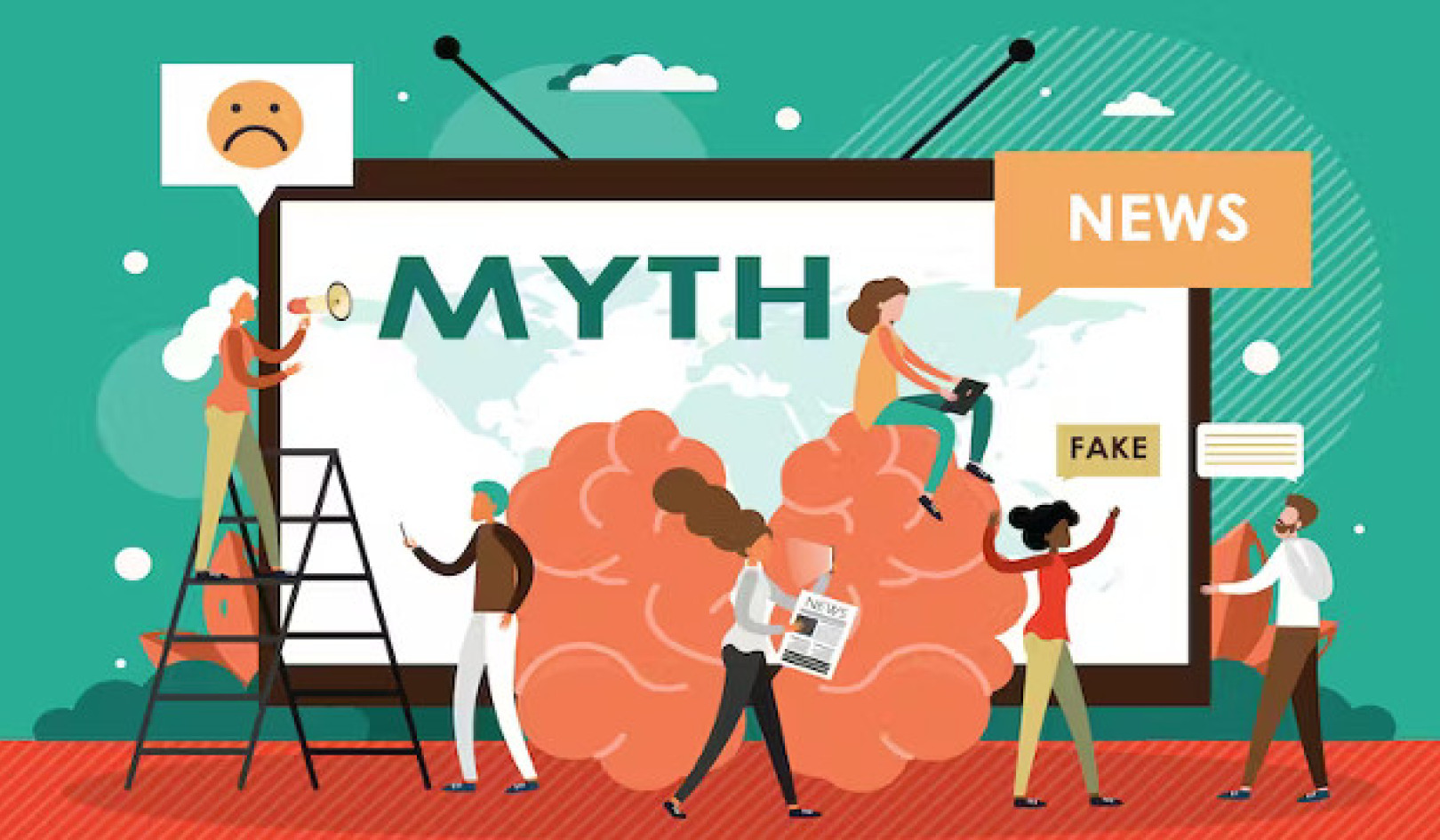
Image by gwtsr74
When you look at a painting, whether the "Mona Lisa," the "Birth of Venus" or anything you find beautiful, where is the beauty coming from? Where is the source of the beauty? It is obviously not coming out of the painting, or everyone would agree that one painting is beautiful and another is ugly. Obviously, the beauty must be projected from somewhere else onto the painting.
In the same way, think of someone you really love. If you think of that person or see them, you feel an upwelling of love in your heart. But if I saw your favorite person from across the room, would I feel the same love that you do? Unless I know them, it is unlikely.
Beauty Is In the Heart of the Beholder
I have two sons, one is four years old and the other is seven. My seven-year-old is a very intense boy. He has a lot of energy. I love him; he's my son. When I go to school to pick him up, I look across the playground at all the kids, and when my eyes light on him, my heart is aflame with love, because he's my son. But not everybody has that same feeling when they see my seven-year-old son. Where is the source of the love? Where does it come from? It comes from you and is projected onto the object. It must be like that. If the love were coming from my son, everyone would fall in love with him as I do. He would be very happy about that, but that is not the way it is.
Love comes from consciousness, from the perceiver, but this is not how we live our lives. We meet someone and act as though they are the source of our love. We say, "Don't leave me. Stay with me! I don't want to lose this love." And then if they try to get away (which they probably will because we're holding on so tightly), we experience abandonment.
There are all kinds of things that we glue on to in this way. We say, "This is the source of my happiness, my security, my love, the source of my well-being." All these things shift and change; they all eventually go away, and we suffer. This may not be clear when you look at your own life, because the attachment is so strong. But when you look at someone else, it is clear that it is the attachment that causes suffering more than the presence or absence of an object. When you look at someone going through a relationship drama, it is obvious that a year before they had the relationship, they were doing fine, probably better than they are now. They became involved in a relationship, things got stirred up, and when the relationship ended they went into suffering. Obviously, the happiness is not coming from the object because they were fine before the drama began.
There is an antidote to all this. When the antidote is applied, it works one hundred percent of the time. I am here only to share this antidote. I travel to different cities to deliver this serum and to celebrate the health that it brings.
The antidote only works when you use it. If you have an illness, you can go to the hospital and the doctor may say, "This is not a big deal; your illness is very simple to cure. You need to take this particular prescription." Then he gives you a piece of paper. But the paper doesn't cure the illness. If you put the prescription in your pocket, nothing will happen. You have to take the piece of paper to the pharmacy, buy a little bottle and read the instructions. When you go home, you pop a pill in your mouth. Then, if the doctor gave you the right medicine, the symptoms will disappear.
It is the same with this antidote. It works only when it is applied. It opens a perspective that is sometimes called an "awakened view." Some people even get really carried away and call it an "enlightened view." I would call it common sense, simple sanity. In comparison, the rest of the way we have led our life looks highly inadvisable.
Who Is The One Experiencing All This?
The simple antidote to everything we have examined here rests in the one simple question, "Who am I? Who is the one experiencing all this?"
This is not a spiritual practice, although one might try to make it into one. It is similar to asking "What is the time?" You ask the question, and you look at your watch to see the answer. Or, "What color is the carpet?" You inquire and look down to determine the answer. To know the answer to any question, it must be treated in this direct way. It is just like that with this question. When you sincerely ask the question, "Who am I?" with the honest intention to find the answer, the antidote to suffering is immediate.
This antidote to suffering is just common sense. It happens to have been handed down from Asian traditions because their attention was more on the internal and less on the external and, perhaps, now they have their own set of problems as a result. There are many aspects of economic life that don't work very well in the material realm in Eastern countries because their attention was on another dimension. Now we have a little cross-fertilization going into effect. We have something to gain from their traditions that have focused on the eternal.
Computers are not intrinsically American; a computer works just as well in India as it does in America. If an Indian were to say to you, "I don't know if I want to use your computer; it's American, and I'm Indian," you could explain to him, "No, the computer is just a computer. You can use it anywhere. It doesn't have to be used only in America." Similarly, this antidote, although it has been more prevalent in the Orient, is simply common sense. It applies anywhere.
What we are speaking of here applies to all six billion people on this planet. This is very, very good news. In the 1960's there began a thirst in this country for something more substantial than met the eye. We reflected on our parents and their culture and, to many of us, something didn't feel right. We began importing teachers from other cultures, thinking to ourselves, "Well, our politicians obviously don't know what's going on, and neither do our religious leaders or parents, so let's import something new. Maybe other cultures will have a better understanding of what is meaningful in life." We imported Indians, Tibetans, Chinese, anyone who was as different as possible from what was familiar to us, and sadly, with whom we were also eventually disillusioned.
From Improvement to Neurotic Behavior?
There is nothing wrong with trying to improve things. In fact, it becomes easier to make improvements once you dis-identify from being what you are trying to change. If you yell at your kids, although it is probably better that you do not yell, that has nothing to do with realization. The personality can be fairly neurotic and still this realization is absolutely available to you. This is great news. You can have freedom now, just as you are. It doesn't matter at all what is happening in your life. It doesn't matter what your personality is like. None of that matters. There is a way that whatever is happening in your life, including the worst, can become an invitation to go even deeper into wakefulness. Suffering is probably the best way to reach depths of understanding. Suffering cuts attachment. This is profoundly good news. This is the time right now, at the end of the millennium, when there can be widespread awakening.
I travel to many cities in the U.S. and Europe and everywhere people are having the same experience. In the beginning people doubt it because it seems elementary, so ordinary that they can't believe it could be so simple. But it is this very simplicity that allows you to rest as the source of love, as the source of everything for which you have been grasping.
Every kind of fulfillment you have tried to find in your ordinary life is available to you in its purity in this very moment right now, right here.
Reprinted with permission of the publisher,
Self X Press, an imprint of the Living Essence Foundation.
©1999. http://www.livingessence.com
Article Source:
How About Now?: Satsang With Arjuna
by Arjuna Nick Ardagh.
 This book is an elegant guide to self-inquiry, perfect for the seasoned adept and the beginner alike. Its contents are taken from transcripts of public meetings (Satsang) conducted by Arjuna. Everything in this book was spoken unrehearsed and in response to whoever was present. Some of the transcripts remain as dialogues: conversations between Arjuna and the old and new friends who came to talk with him on the couch at the front of the room. Other pieces have become prose: longer discourses that lent themselves to more thorough exploration of a topic and some of the transcripts playfully called out to be transformed into poetry.
This book is an elegant guide to self-inquiry, perfect for the seasoned adept and the beginner alike. Its contents are taken from transcripts of public meetings (Satsang) conducted by Arjuna. Everything in this book was spoken unrehearsed and in response to whoever was present. Some of the transcripts remain as dialogues: conversations between Arjuna and the old and new friends who came to talk with him on the couch at the front of the room. Other pieces have become prose: longer discourses that lent themselves to more thorough exploration of a topic and some of the transcripts playfully called out to be transformed into poetry.
About the Author
 Arjuna has maintained an unbroken passion for spiritual awakening since 1971. He conducts public Satsang throughout the US and Europe several times a week. With a group of dedicated friends he has developed the Living Essence Training, which prepares people to be facilitators of awakening with others. Arjuna is the author of Relaxing into Clear Seeing, the Living Essence Tapes Series, and How About Now?
Arjuna has maintained an unbroken passion for spiritual awakening since 1971. He conducts public Satsang throughout the US and Europe several times a week. With a group of dedicated friends he has developed the Living Essence Training, which prepares people to be facilitators of awakening with others. Arjuna is the author of Relaxing into Clear Seeing, the Living Essence Tapes Series, and How About Now?






















